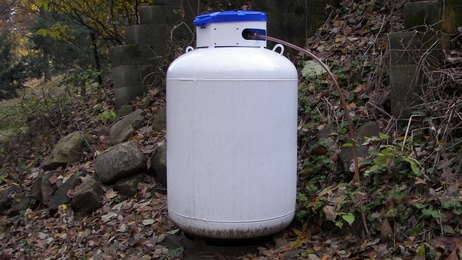
It's possible to convert a standard diesel engine to run on natural gas ("liquid propane" or LP), but you may want to use LP as a supplemental fuel. Although LP burns cleaner than diesel and may help your engine last longer, it isn't necessarily cheaper.
Diesel engines "squeeze" the fuel they ingest until it explodes, meaning they can run on practically anything. Propane has long been used as a supplemental fuel for turbo-diesel engines.
LP burns cleaner than diesel and cools the intake air, so it's better for use indoors and can generate a bit more power than gas or diesel. It also contains fewer contaminants than diesel, which means the engine should last longer.
A gallon of diesel has roughly 128,000 BTU (British Thermal Units) of energy potential, and natural gas has 84,000. You would have to inject about 50% more propane to produce the same amount of power as diesel, which largely negates any decrease in operating cost.
Propane injection is easy to use as a supplemental fuel because it's stored under pressure, and its cooling effects make it an ideal addition for turbocharged engines.
If you want to see a fully-converted and functional diesel-to-natural gas engine, check out your local UPS terminal. About 10% of the company's trucks are powered by natural gas.